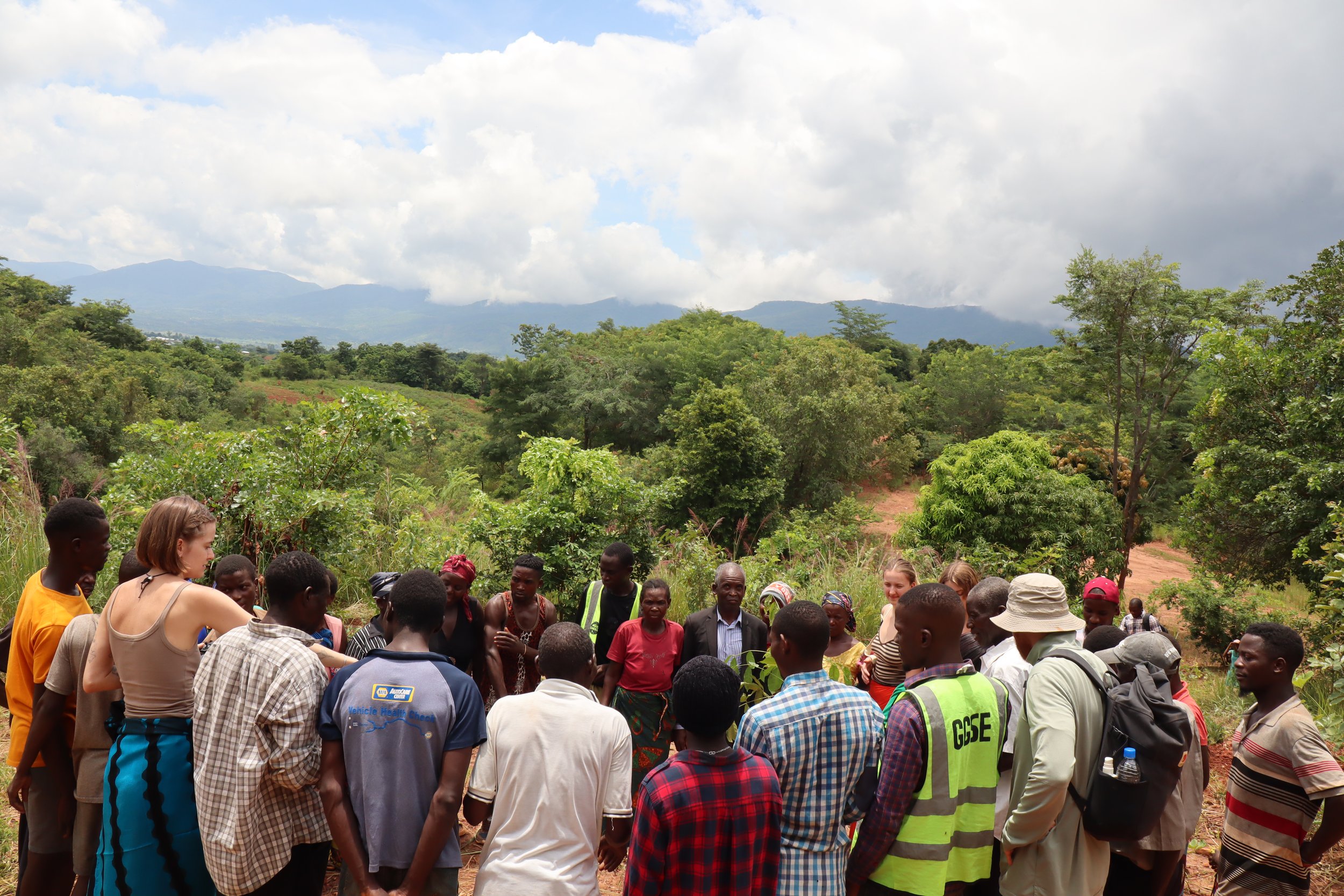
TREES FOR TOMORROW
Combat deforestation
for a greener future
Trees for Tomorrow is an initiative to plant 20,000 trees in Nkhata Bay District over a period of two years, collaborating with local communities to combat deforestation. Led by Mayoka Youth Hub and Go Green Save the Environment, the project targets Mandezu Community Forest and runs from March 2024 to March 2026. Sixty households have been identified as beneficiaries of various interventions.
By restoring 20 hectares of forest and introducing sustainable income alternatives, the project aims to reduce dependency on charcoal production, a major cause of deforestation. This effort not only helps mitigate climate change but also builds economic resilience in local communities.
The project is being implemented in close consultation with the local Forest Office and aligns with Malawi’s national goals under the UN’s Agenda 2030 for Sustainable Development and Malawi’s Vision 2063.
Interventions
-
This intervention aims at reforesting the forest through enrichment planting as well as massively planting tree seedlings where a larger portion of land is completely bare as well as where there is potential for natural regeneration then the regenerants or coppices will be taken care of. Tree nurseries will be established in the area where trees will be planted.
We plant a wide variety of tree species, ranging from fruit trees and fast-growing trees to indigenous species. Our goal is for at least 80% of the planted trees to survive.
-
Tree species are planted on small farmers' fields, which can provide nutrients and protection to the depleted soil and be grown alongside agricultural crops.
This is a win-win situation for the locals, the crops, the trees, and the climate.
The project offers free agroforesty workshops to the beneficiaries. Lead farmers are identified so that their fields can be used as demos and replicated in other beneficiaries’ fields
-
Beekeeping and honey production have several benefits for villages in Malawi. Bees and pollination are crucial for the fertilization of fruit trees, which are an important food source in many villages. Unfortunately, bees are in decline, making it relevant to support their preservation. Additionally, honey production is an income-generating activity that can benefit the village. Lastly, beekeeping also has a protective effect on the trees.
The community already has a background of beekeeping that is locally done but there is inadequate knowledge and skills hence capacity building is required. The programme will establish 10 beehives and provide training on beekeeping.
-
Chickens are central to Malawian households, and poultry farming can be an important source of income. The project donates 20 chickens to a community chicken house in Mandezu as well as training from an expert on how to raise them well and take care of them incl. food, vaccines, etc.
-
Fuel-saving cooking stoves are designed to improve the efficiency of wood combustion when cooking over an open fire. This will minimize consumption of firewood. Eco stoves will be provided to 60 households in Mandezu.
Progress
A tree nursery has been established
Tools such as wheelbarrows, seeds of Mahogany, Pines, Gliricidia and Senna spectabilis, polythene tubes, rakes, panga knives and watering canes were supplied for the nursery
The community is carrying out activities such as pot filling and seed sowing
Tree planting training has been provided
500 trees planted in 2024
9.000 seeds should be ready for the 24/25 tree planting season
Tree planting
The community opted to raise egg-layer chickens
Training was provided to the community
The community received 20 chickens
Livestock farming





